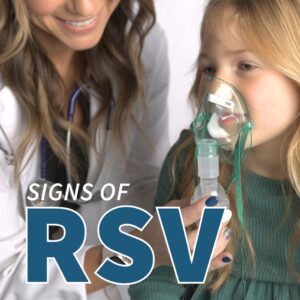Allergy Testing 101: A Guide to Navigating Allergy Season
With spring on the horizon, many people are bracing themselves for allergy season. The sneezing, itchy eyes and runny nose can be a real challenge for those who suffer from allergies. Read on to explore how allergy testing can help better understand and prepare for the upcoming season.
Types of Allergy Testing
Allergy testing is a diagnostic procedure that helps identify specific substances, known as allergens, which trigger allergic reactions in an individual. There are two primary types of allergy tests: skin tests and blood tests.
Skin Tests:
- Prick test: Small amounts of allergens are applied to the skin using a tiny needle. If a person is allergic, a small red bump or hive will appear at the test site.
- Intradermal test: A small amount of allergen is injected just beneath the skin’s surface. This test is more sensitive than the prick test but is usually reserved for specific circumstances.
Blood Tests:
- RAST (radioallergosorbent test): Measures the amount of specific antibodies (IgE) in the blood in response to particular allergens.
- ELISA (enzyme-linked immunosorbent assay): Another form of blood testing that identifies allergen-specific antibodies.
Why Allergy Testing Matters
- Identifying Triggers: Allergy testing helps pinpoint the exact allergens causing your symptoms. This information is crucial for developing an effective management plan.
- Customized Treatment: Armed with knowledge about your specific triggers, healthcare providers can create a tailored treatment plan. This may include medications, lifestyle modifications or allergen immunotherapy.
- Avoidance Strategies: Understanding your allergens allows you to take proactive steps to minimize exposure. This might involve making changes to your living environment or adjusting your outdoor activities.
- Improved Quality of Life: By managing your allergies, you can improve your quality of life. You’ll be better equipped to enjoy outdoor activities and daily life without the constant burden of allergy symptoms.
Preparing For Allergy Season
- Schedule Early Testing: Plan your allergy testing well in advance of allergy season. This allows you and your healthcare provider to create a comprehensive strategy before symptoms kick in.
- Stay Informed: Keep track of local pollen forecasts and be aware of the specific allergens prevalent in your area during different seasons. This information can help you take precautionary measures on days when allergen levels are high.
- Follow Treatment Guidance: If allergy testing reveals specific triggers, adhere to the recommended treatment plan. This may include medications, avoidance strategies or allergen immunotherapy.
- Environmental Adjustments: Make modifications to your living space to reduce your exposure to allergens. This could involve using air purifiers, keeping windows closed during peak pollen times, and regularly cleaning and dusting your home.
Don’t let allergy season catch you off guard — take control of your allergies and enjoy the beauty of every season with greater comfort and confidence. Visit Midwest Express Clinic today for all your allergy-related needs, including testing and treatment services. To find an urgent care near you, visit midwestexpressclinic.com/locations.




